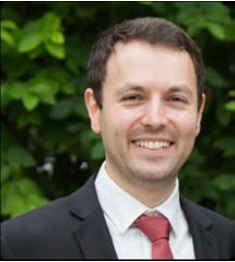Notice:
This event occurs in the past.
Sustainable Energy Speaker Series – Dead-end pathways: conceptualizing, operationalizing, identifying, avoiding
Thursday, September 26, 2024 from 6:00 pm to 7:30 pm
- In-person event
- 3020, Nicol, Carleton University
- 1125 Colonel By Drive, Ottawa, ON, K1S 5B6
- Contact
- James Ouzas, JamesOuzas@cunet.carleton.ca
Abstract
It has been nearly a decade since the Paris agreement crystallized global ambition to reach net zero greenhouse gas emissions by mid-century. While climate action has increased and transitions are beginning to accelerate in key sectors, the first global stock take at COP28 in 2023 reinforced that progress has thus far been insufficient. The point of departure for this talk is that at least part of the reason for this slow progress is a failure to adequately appreciate the transformational change required by net-zero commitments within near-term decision-making, including important choices about which technological approaches to support through policy and regulatory actions. Consequently, decision-makers have been able to continue to rationalize actions that delay or actively work against transitions to net-zero. In response, this talk elaborates a decision-making framework intended to equip policymakers and those that would hold them to account (e.g., civil society organizations) with the tools needed to identify and avoid actions that might seem promising in the near-term but are constrained in some fashion that make them unable to deliver desired net-zero outcomes. Put differently, I will offer insights on conceptualizing, operationalizing, identifying, and avoiding dead-end pathways for net-zero.
Please register for this event by Wednesday, September 25, 2024.
Speaker Biography

Daniel Rosenbloom is an Assistant Professor in the School of Public Policy and Administration and the Ivey Research Chair in Sustainability Transitions. His research program focuses on charting and realizing transition pathways to more sustainable futures. Over the past decade, he has published widely on the policy and political dimensions of transitions to low-carbon and net-zero emissions energy systems. Currently, he is particularly interested in studying and identifying ways to overcome political resistance to net-zero transitions, tracing the evolution of electrification strategies and processes, and developing decision support frameworks that bring near-term choices into dialogue with long-term net-zero outcomes. Daniel is also active within the broader international transition community, where he is an elected member of the Steering Group for the Sustainability Transitions Research Network. Prior to joining the School of Public Policy and Administration, Daniel held policy leadership roles at Environment and Climate Change Canada.